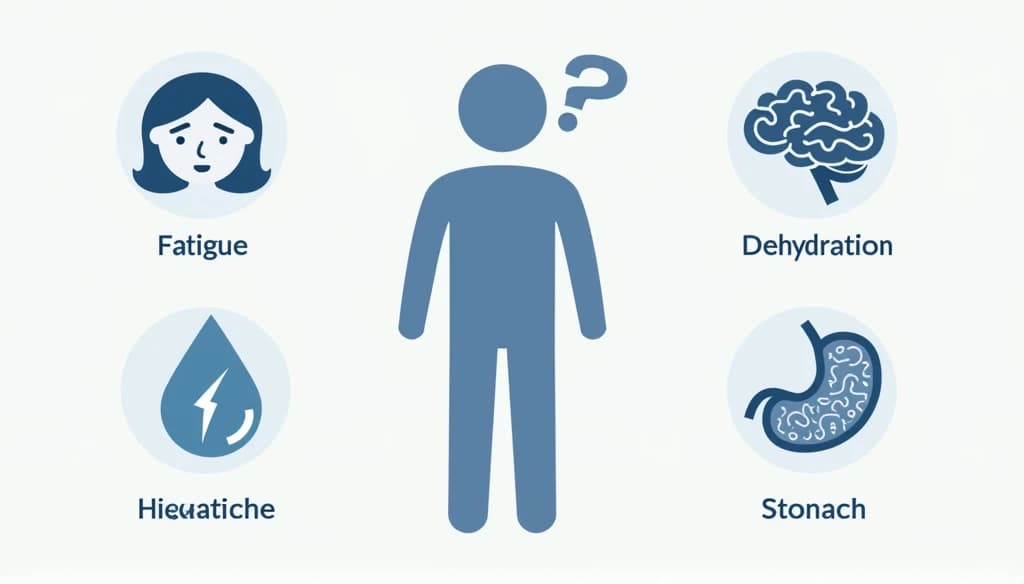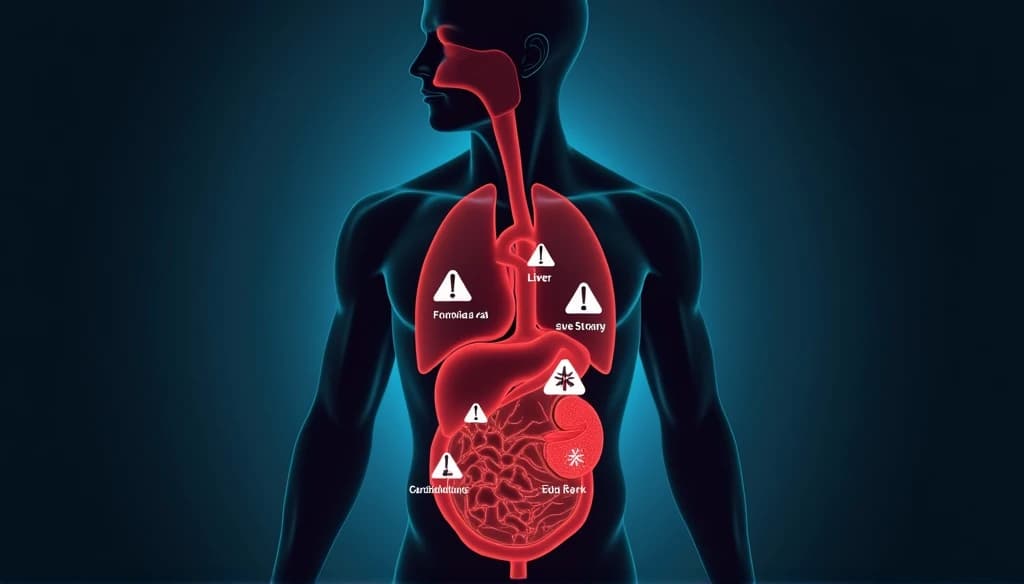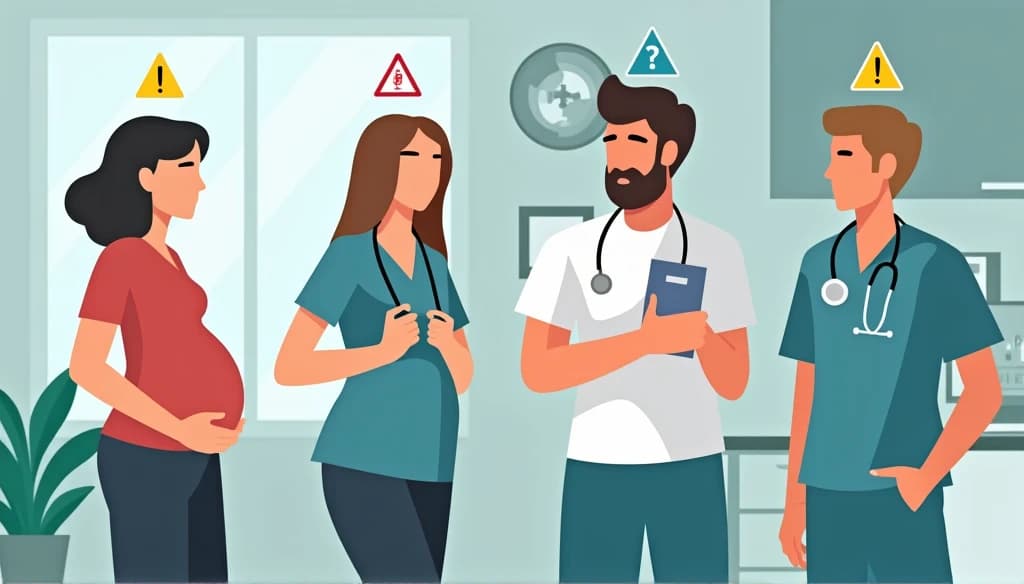Table of Contents
ToggleKeto Ruined My Health?, Are you struggling with unexpected side effects after following the keto diet? Perhaps you started with high hopes of shedding pounds fast, but somewhere along the way, things took a turn for the worse. You’re not alone.
Many people rave about the rapid weight loss and energy boost they experience with the ketogenic diet. But what happens when the diet that was supposed to improve your health actually starts to harm it? Let’s dive into the potential downsides of keto, the science behind them, and what you can do to fix the situation.
What is the Keto Diet?
The ketogenic (keto) diet is a low-carb, high-fat diet designed to put your body into a state of ketosis. When in ketosis, your body burns fat for energy instead of carbohydrates. This metabolic shift happens when you drastically reduce your carbohydrate intake to around 20-50 grams per day, forcing your body to use fats as its primary fuel source.
How It Works
- Carbs: 5–10% of daily calories
- Protein: 20–25% of daily calories
- Fats: 70–80% of daily calories
The initial appeal of the keto diet lies in its promise of rapid weight loss and improved energy levels. However, the diet may not be as beneficial—or safe—as it seems for everyone.
How Keto Can Go Wrong: The Short-Term Side Effects

Many people experience initial discomfort when starting the keto diet, often referred to as the “keto flu.” These symptoms can range from mild to severe, and they often occur within the first few days or weeks of adopting the diet.
Short-Term Side Effects
- Fatigue and Brain Fog
As your body adapts to burning fat instead of carbs, many people report feeling lethargic, irritable, and mentally sluggish. - Digestive Issues
Due to the high-fat content, some individuals experience constipation, nausea, or diarrhea. - Keto Flu
Symptoms include headaches, muscle cramps, dizziness, and poor sleep. This happens as your body loses electrolytes and adjusts to a low-carb state. - Bad Breath (Keto Breath)
Acetone, a byproduct of fat metabolism, can cause a metallic or fruity odor in your breath. - Dehydration and Electrolyte Imbalance
Since carbs help retain water, cutting them out can lead to dehydration and an imbalance in electrolytes like sodium, potassium, and magnesium.
The Long-Term Dangers of a Keto Diet

While the short-term side effects are often transient, the long-term consequences of staying on the keto diet can be more severe and harder to reverse.
Increased Cardiovascular Risk
The ketogenic diet is high in saturated fats, which can increase your risk of developing heart disease. Studies have shown that long-term adherence to the keto diet can lead to elevated levels of LDL cholesterol, commonly known as “bad cholesterol.”
Nutrient Deficiencies
By eliminating most fruits, vegetables, and grains, you may miss out on essential nutrients like vitamins A, C, and K, as well as magnesium, potassium, and fiber. This can lead to long-term health problems like weakened bones, poor skin health, and weakened immune function.
Liver and Kidney Issues
The high fat content in the keto diet can put a strain on your liver, especially if you already have pre-existing liver conditions. Additionally, the diet’s high protein content can exacerbate kidney problems, particularly in individuals with pre-existing kidney disease.
Loss of Muscle Mass
While the keto diet can lead to fat loss, it can also result in muscle loss, particularly if you’re not consuming enough protein or engaging in resistance training. Over time, this can lead to a slower metabolism and decreased physical performance.
Hormonal Imbalance
For women, the keto diet can lead to disruptions in menstrual cycles, fertility issues, and imbalances in thyroid function. These hormonal changes are linked to the body’s response to extreme dietary changes and calorie restriction.
Who Should Avoid the Keto Diet?

While the keto diet may offer benefits for some, it can be harmful to others. It’s important to consult with a healthcare provider before starting any drastic dietary changes, especially if you fall into one of the following categories:
- Pregnant or Breastfeeding Women
The keto diet can lead to nutrient deficiencies that may affect both the mother and the baby. - People with Kidney Disease
The high protein content in the keto diet can put additional strain on the kidneys. - Individuals with Eating Disorders
The restrictive nature of the keto diet can exacerbate unhealthy eating behaviors. - People with Liver Conditions
The keto diet can stress the liver, making it unsuitable for individuals with liver disease. - Individuals with Cardiovascular Risk
The high levels of saturated fats can increase cholesterol levels, leading to higher risk of heart disease.
How to Recover from Keto Diet Damage

If you’ve experienced negative effects from following the keto diet, it’s essential to take steps to restore your health. Here are some strategies to help your body recover:
1. Gradually Reintroduce Carbohydrates
Don’t abruptly switch back to a high-carb diet. Gradually reintroduce healthy carbs like whole grains, fruits, and vegetables to avoid shocking your system.
2. Focus on Nutrient-Rich Foods
Incorporate a variety of nutrient-dense foods into your diet to replenish lost vitamins and minerals. Include leafy greens, nuts, seeds, and lean proteins.
3. Hydrate and Restore Electrolytes
Drink plenty of water and consider supplementing with electrolytes, especially sodium, potassium, and magnesium, to restore balance.
4. Monitor Cholesterol Levels
If you’ve been on the keto diet for an extended period, it’s a good idea to check your cholesterol levels. If they’re elevated, consider reducing your intake of saturated fats and increasing fiber intake.
5. Exercise to Build Muscle
If you’ve lost muscle mass, incorporate resistance training and strength-building exercises into your routine to regain muscle strength and boost metabolism.
Comparing Keto with Other Diets
To give you a clearer picture of how the keto diet stacks up against other popular diets, here’s a comparative table:
| Diet | Carb Intake | Protein Intake | Fat Intake | Main Focus | Potential Risks |
|---|---|---|---|---|---|
| Keto | Very low (5–10%) | Moderate (20–25%) | High (70–80%) | Fat loss via ketosis | Nutrient deficiency, heart risk |
| Mediterranean | Moderate | Moderate | Moderate | Heart health, balanced eating | Few risks if balanced |
| Paleo | Low to Moderate | High | Moderate | Whole foods, no processed | Can be restrictive, costly |
| Vegan | High | Low to Moderate | Low | Plant-based, ethical eating | Nutrient deficiencies (B12, iron) |
| Low-Carb | Low to Moderate | Moderate | High | Weight loss, blood sugar | May lack fiber, long-term unknowns |
Conclusion
While the keto diet can offer quick results, it’s not a one-size-fits-all solution. If you feel like “keto ruined” your health, you’re not alone. The diet’s restrictive nature, potential for nutrient deficiencies, and long-term risks make it crucial to approach it with caution. Always consult with a healthcare provider before starting or modifying any diet, and consider your personal health needs to avoid unintended consequences.
By understanding the risks and making informed choices, you can protect your health and achieve your goals without compromising your well-being.
Frequently Asked Questions
Can keto permanently damage your metabolism?
Keto can slow down metabolism over time, especially if muscle mass is lost. However, recovery is possible with proper diet and exercise.
How long should you stay on keto?
Most experts recommend following the keto diet for short periods (3 to 6 months) rather than making it a long-term lifestyle.
Is keto bad for your heart?
Long-term keto can raise LDL cholesterol, increasing heart disease risk. It’s crucial to monitor your heart health while on this diet.
Can keto cause digestive issues?
Yes, the lack of fiber-rich foods can lead to constipation and digestive discomfort. Incorporating more vegetables can help.
Is keto suitable for everyone?
No, people with certain health conditions like kidney disease, liver issues, or those who are pregnant should avoid keto.





